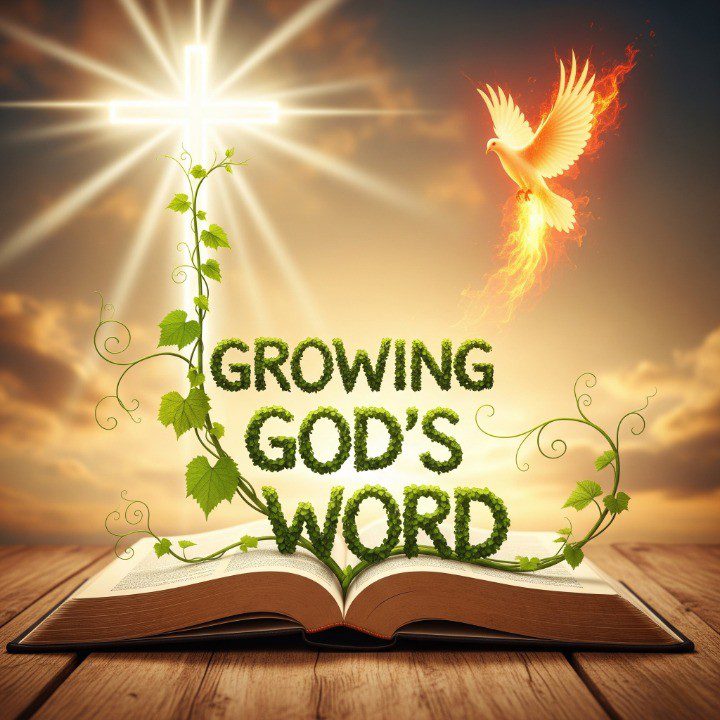Understanding Biblical Discernment: A Clear Guide for Faithful Living
Discernment, as taught in the Bible, is a vital gift and practice for Christians seeking to live in a way that honors God. Grounded in God’s sovereignty [complete authority], the guidance of the Holy Spirit, and the truth of Scripture, discernment enables believers to distinguish truth from error and make decisions aligned with God’s will. This article explains biblical discernment, how to cultivate it, and the balance between God’s gift and human responsibility, using clear language accessible to readers with intermediate English proficiency while preserving theological depth.
What Is Biblical Discernment?

In Scripture, discernment (Greek: diakrisis [distinguishing, discerning, or judging] in Hebrews 5:14, dokimazo [to test, examine, prove, or scrutinize] in Philippians 1:9-10) is the God-given ability to judge correctly between truth and falsehood, good and evil, and God’s will versus human desires. It is both a spiritual gift and a skill developed through practice. The Apostle Paul prays for believers to grow in “knowledge and all discernment” (Phil 1:9-10), showing its importance in making choices that glorify God. Hebrews 5:14 describes mature believers who, “by constant use have trained themselves to distinguish good from evil,” emphasizing discernment’s role in daily life.
To discern
To distinguish, Use Correct Judgement
To discern
To Test, Examine, Prove, or Scrutinize
Discernment is not merely intuition or human reasoning but a process guided by the Holy Spirit and rooted in God’s Word. As John 16:13 states, the Holy Spirit “will guide you into all truth,” illuminating Scripture to reveal God’s will (Ps 119:105). This makes discernment essential for avoiding deception [false teachings] (Col 2:8), resisting the pull of emotions over truth (Jer 17:9), and pursuing a holy life (1 Pet 1:15-16).
The Theological Balance: God’s Gift and Human Duty
A key question in understanding discernment is how God’s sovereignty [absolute authority] works with human responsibility [our duty to act]. From a Reformed perspective, discernment is a gift of the Holy Spirit (1 Cor 12:10, “distinguishing between spirits”). The Spirit grants wisdom to believers, helping them understand and apply Scripture (John 16:13). Yet, Scripture also calls believers to actively pursue discernment through studying and obeying God’s Word (2 Tim 2:15, Heb 5:14). This reflects the Reformed belief that God provides grace, but we must respond with faithful effort.
For example, the Bereans (Acts 17:11) demonstrated this balance by “examining the Scriptures daily” to verify Paul’s teaching, relying on God’s truth while diligently studying. Similarly, Solomon prayed for “an understanding heart” (1 Kings 3:9), which God granted, but he applied that wisdom in his decisions (1 Kings 3:16-28).
How to Cultivate Discernment
Developing discernment requires a deliberate, Spirit-led process rooted in biblical principles. Here are the key steps, supported by Scripture and explained clearly:
- Study Scripture Daily: The Bible is the foundation of discernment, as it is “profitable for teaching, for reproof, for correction, and for training in righteousness” (2 Tim 3:16-17). Regular reading and reflection on God’s Word (Ps 1:2) help us understand His will (Rom 12:2). For example, the Psalmist prayed, “Give your servant a discerning heart to understand your statutes [laws]” (Ps 119:125).
- Pray for Wisdom: James 1:5 encourages believers to ask God for wisdom, trusting the Holy Spirit to guide (John 16:13). Prayer aligns our hearts with God’s truth, protecting us from deceptive emotions (Jer 17:9).
- Practice Obedience: Discernment grows through “constant use” (Heb 5:14). Applying biblical principles to decisions strengthens our ability to distinguish good from evil. For instance, Paul discerned God’s will for his missionary journeys through faithful obedience (Acts 16:6-10).
- Seek Godly Counsel: Proverbs 15:22 states, “Plans fail for lack of counsel, but with many advisers they succeed.” The early church in Acts 15 resolved doctrinal issues through Scripture-based discussion, showing the value of wise counsel.
- Guard Against Emotionalism [Relying Too Much on Feelings]: The heart can deceive (Jer 17:9), so discernment requires prioritizing Scripture over emotions. Testing all things against God’s Word (1 Thess 5:21-22) ensures decisions align with truth.
Historical Example: Martin Luther’s Discernment
The Reformation illustrates discernment in action. Martin Luther stood firm on biblical truth, declaring, “Here I stand, I can do no other” (Diet of Worms, 1521). His conviction came from years of studying Scripture and relying on the Holy Spirit, not from fleeting emotions.
Why Discernment Matters
From a biblical perspective, discernment carries great weight. It protects believers from false teachings (Eph 4:14), ensures obedience to God’s will (Rom 12:2), and upholds the church’s purity and witness [testimony] (1 Tim 6:20). Without discernment, Christians risk spiritual drift, wrong choices, or harm to the church’s message. Godly discernment, however, advances God’s kingdom and reflects His glory [greatness].
Practical Steps for Growth
To grow in discernment, commit to these actions:
- Daily Bible Reading: Spend 15 minutes or more daily reading Scripture (e.g., Proverbs or Psalms), writing down one lesson learned.
- Prayer for Wisdom: Pray daily, “Lord, grant me discernment through your Spirit and Word” (Ps 119:125).
- Test Decisions: For each decision, find relevant Bible verses, evaluate options, and act in faith (Phil 1:9-10).
- Seek Wise Counsel: Consult a mature Christian or pastor for Bible-based advice (Prov 15:22).
- Reflect Monthly: Review how Scripture and the Spirit have guided your choices (Phil 1:6).
Conclusion: A Lifelong Pursuit
Biblical discernment is both a divine gift and a discipline, requiring the Holy Spirit’s guidance and our faithful effort. By studying Scripture, praying for wisdom, obeying God, seeking counsel, and prioritizing truth over emotions, we grow in discerning God’s will. Hebrews 5:14 reminds us that maturity in discernment comes through practice, leading to a life that glorifies God. Like the Bereans and Reformers, let us pursue discernment with faith and obedience, trusting the Spirit to guide us into all truth (John 16:13).

